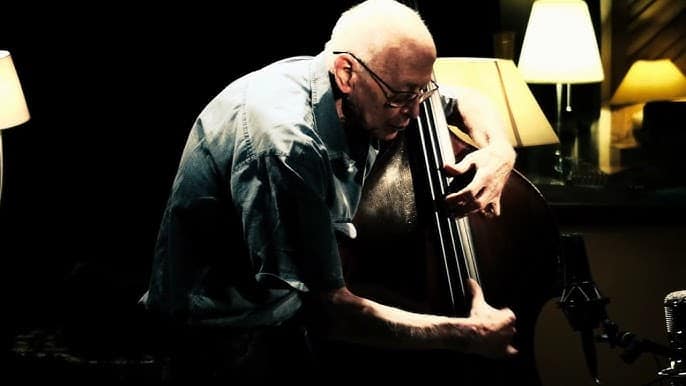The toughest interview of my life
mainA couple of years ago, as a favour to a friend, I attempted to conduct a rare interview with the Greek composer Vangelis, famed for the Chariots of Fire score.
I should have known better.
Everyone in the music biz has a Vangelis story and none of them is filled with sweetness and light.
Early success can be a curse, breeding a sense of entitlement. Vangelis does what he does on his own terms. When I turned up at his Dorchester suite at the appointed hour of the afternoon, he was in his dressing gown and apparently disinclined to discuss any of the topics he had previously agreed to consider.
The next hour was, for me, excruciating. I came away thinking we had maybe got something new out of the encounter, but feeling in dire need of a large compensatory bar of chocolate.
Now, after intensive effort by a brilliant editor, the interview has finally been published.
You can access it here on sinfinimusic.com.






And yet, the interview comes across as fairly pleasant. I’m pleased to note that Vangelis doesn’t feature in ” The Companion to 20th Century Music” by Norman Lebrecht.
If we were to ignore the works of composers who had strange personality traits and eccentric (nay outrageous) behaviour there would be a lot of composers excluded. But I suspect this is more to do with the elitist attitude to those considered “non classical” composers.
Shsssss! I hear the footsteps of our Dutch friend to defend “high art”…………….
Odd, isn’t it, that this “composer” who is primarily known for a couple of soundtracks isn’t referred to as a “film composer”. Korngold wrote (and he actually wrote it) far more non-film music than for the cinema and yet is nearly always referred to as a film composer. Why not Vangelis? And I have trouble with any so-called musician who can’t read or the notation. He will be remembered for two soundtracks, and that’s it. I put him in the same category as Yanni. They both use electronics to create sounds that the gullible elevate to the level of greatness.
“Early success can be a curse, breeding a sense of entitlement.”
I know you’re frustrated that you had to deal with someone else, but your not allowed to put the blame on the interviewee for things not going the way you hoped.
There is a marvellous interview with Neil Brand on the excellent Sound of the Cinema series on BBC 4. Actually it is not just an interview but a discussion and demonstration of how he created the Chariots of Fire music. Neil Brand made it look so easy.
Why would you even want to interview a composer of elevator music? Who next, Andre Rieu?
Sinfini Music is a project of Deutsche Grammophone, THE authoritative source of classical music which now records Anoushka Shankar, and makes the Royal Philharmonic play The Who, you know, the true classics.
Also, apparently someone in this blog doesnt like to aknowledge this as any comment mentioning the above is magically ‘erased’
So much for democracy and free speech. Respectfully yours.
Composer of elevator music ? More respect with Vangelis!!
People who describe him as composer of elevator music is the same who really doesn’t understand nothing about music and art.
I’m not a really big fan a most of Vangelis’s music, but “Blade Runner” is one of the best films ever created. His music plays a significant role in its greatness. The music at the ending of “Blade Runner” helps it to be one of the best few minutes in all of cinema. It’s not possible to appreciate the ending by seeing just a clip out of context, and the YouTube video codec harms the cinematography, but here it is:
https://www.youtube.com/watch?v=4kPocPwXzdM
He also wrote a haunting score for an extraordinary Japanese film called Antarctica.
I’m afraid in the interview he also struck me as vague and a little vain.
Who is next in the list? Lady Gaga or Andre Rieu?
Also I would like to announce I have just devised a method to compose a theater play without writing a word. I just look at the actors and they start speaking, as if by magic.
Then someone transcribes it.
Its the greatest achievement of my life. Its rather fantastic.
Actually I’d love to see Lebrecht interview Lady Gaga.
Vangelis uses a unique synth set up to compose, orchestrate and play his music, most often all at the same time (https://www.youtube.com/watch?v=Tk1cSqRsJtw). Then either the music is released in its original electronic form, or it is transcripted in traditional scores by a classically trained orchestrator, in order to be played by other musicians (orchestra or solists). But basically, and this is what the interviewer himself does not seem to take into account in the interview is that Vangelis plays by himself the music he composes. And he already did that at the end of the 1960s before the modern synthesizer technologies did exist, playing, as he explains, keyboards, percussions, flutes, piano etc. all by himself (https://www.youtube.com/watch?v=a8Ai_iRqzQk), and recording the different instruments on tapes, layer after layer, in the studio. You may like Vangelis’music or not and off course be critic about his music, but some comments here are very ill-informed – or not informed at all -, just like if I produced patronizing comments about the whole oeuvre of Bach after having heard one of his tunes on an old Nokia cell phone. I personnally listen both to Bach and to Vangelis, as well as to Anoushka Shankar even though classical Indian music is not written on scores in western notation.
Are you reading Deutsche Grammophon? We have a winner, your re – branding of what ‘classical music’ means is working!
2 more generations and the concept will be 100% different. We’ll always have Norman’s books to remind future generation how it used to be.
So what’s new?
I very much like his music for The Bounty (1984). Synthesizer music for a period seafaring movie shouldn’t work; but in this case it actually does.
Otherwise not much of a fan; I can’t really distinguish him from Tomita.
From here in Mexico, the link redirects to the Deutsche Grammophon catalogue. Any suggestions? Thanks.